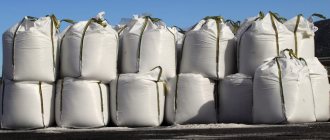What does the entry Debit 91 and Credit 91 reflect?
91 accounting account is an account on which the organization’s income and expenses are recorded that are not directly related to its main activities (Order of the Ministry of Finance dated October 31, 2000 No. 94n (hereinafter referred to as the Chart of Accounts).
The following sub-accounts can be opened to it:
- 91.1 “Other income”;
- 91.2 “Other expenses”;
- 91.9 “Balance of other income and expenses.”
Income received by the organization (account 91.1) can be classified as other if they represent:
- income from the rental of its property;
- profit under a simple partnership agreement;
- income from the sale of fixed assets and other assets of the company;
- interest received under loan agreements;
- fines, penalties, and forfeit amounts transferred in favor of this organization due to violation of contract terms by counterparties;
- resulting positive exchange rate differences;
- profit of previous periods;
- expired accounts payable;
- other income other than core activities.
Such receipts are reflected in the credit of account 91.
In the debit of account 91 (subaccount 91.2) other expenses are recorded:
- losses associated with the sale of company property;
- interest paid on loans and credits;
- expenses for banking services for servicing accounts with credit institutions;
- fines and penalties paid by the organization;
- recognized losses of previous years;
- accounts receivable that are impossible to collect;
- negative exchange rate differences;
- other expenses listed in the instructions to the Chart of Accounts.
Subaccount 91.9 reflects the final balance for the reporting period for other income and expenses, determined by comparing the turnover in accounts 91.1 and 91.2.
Find out what expenses are considered other in tax accounting and how they are taken into account for income tax in the Ready-made solution from ConsultantPlus. Trial access to the legal system is free.
Account 91 “Other income and expenses”
Income receipts from sales and expense transactions related to the main activity of the enterprise are subject to reflection in accounting account 90 “Sales”. But income and expenses from other activities cannot be reflected on the sales account. In accordance with Order of the Ministry of Finance No. 94n, such transactions should be accumulated in a special account 91 in accounting.
Let us remind you that other types of operations include the following:
| Income | Expenses |
|
|
Accounting account 91 is intended to reflect income from other types of credit activities and debit expenses.
How does the posting Debit 91 Credit 91 correspond with other accounts
When generating other income or expenses of the organization, the sources of their occurrence are taken into account:
- Dt 91 Kt 51 - if expenses arise in connection with banking services (commissions associated with account transactions).
- Dt 91 Kt 60 - attributing the shortage to other expenses after acceptance of goods from the supplier, charging penalties in favor of the supplier.
- Dt 91 Kt 01 - loss from the sale of fixed assets.
- Dt 60 Kt 91 - recognition of accounts payable (including unclaimed or expired) as income of the organization.
- Dt 76 Kt 91 - reflection of unclaimed amounts deposited for wages as income.
- Dt 10 Kt 91 - free receipt of materials.
Postings Kt 91 Dt 91 also record the results of other income and expenses:
- Dt 91 Kt 99 - profit on other income and expenses is reflected;
- Dt 99 Kt 91 - a loss was received on other income and expenses.
Typical accounting entries 91
Let's consider the main accounting entries for reflecting business transactions with other income and expenses:
| Content | Debit | Credit |
| Receipt of PD to settlement accounts or to the company’s cash desk | 51 50 | 91-1 |
| PD for settlements with customers is reflected | 62 | 91-1 |
| PD for settlements with various debtors and creditors was taken into account | 76 | 91-1 |
| Value added tax is charged for other transactions | 91-3 | 68 |
| Reflected PR upon disposal of fixed assets | 91-2 | 01 |
| DP taken into account when disposing of inventories or raw materials | 91-2 | 10 |
| Accepted for accounting of PR for settlements with suppliers and contractors | 91-2 | 62 |
| Disposals from the company's settlement accounts for PR operations are reflected | 91-2 | 51 |
Note that accounting account 91 at the end of the reporting month should not have any balances, that is, this accounting account should be closed.
What does the entry Debit 91 Credit 94 mean?
In cases where losses of valuables that have occurred in an organization or shortages identified as a result of an inventory cannot be compensated at the expense of the guilty parties, the resulting expenses are charged to account 91: Dt 91 Kt 94 - writing off shortages and losses as other expenses.
Important to consider! Recommendation from ConsultantPlus: When writing off shortages of valuables or their damage in excess of the norms of natural loss, confirmation of the validity of such write-off is necessary. They must be confirmed by the following documents... For more details, see K+. Trial access is free.
And when transferring property and materials free of charge to third parties, the following entries are made: Debit 91 Credit 10 or Dt 91 Kt 41.
For additional information on establishing the facts of shortages, see the article “Accounting for losses from theft if the culprit is not identified.”
Accounting for emergency expenses
After an emergency (flood, etc.), it is necessary to conduct an inventory. It is needed in order to determine the exact amount of damage. An inventory commission is appointed. Its function in this situation is to detect spoiled and damaged objects. During the event, lists are compiled. It makes sense to make separate lists of property that cannot be restored or is subject to restoration.
Objects that cannot be used in the future are written off. To write off funds, a special act is drawn up in form OS-4. If these are material and production assets, an MB-8 act is issued to write them off. Write-off of valuables is carried out at their actual cost, fixed assets - at the residual price. Residual value is determined by taking the difference between initial cost and depreciation. Objects are written off in the month the inventory is taken. The remaining parts are received, for which a demand invoice is drawn up.
Expenses to eliminate the consequences of an emergency are recorded in account 99 “Losses”. The correspondence of this account are accounts 01, 04, 10, 43, 50, 70 and others. Expenses must be taken into account in the period in which the emergency occurred.
Accounting entries
When accounting for emergency expenses, these entries are used:
- DT91/2 KT01. Write-off of the residual value of fixed assets.
- DT91/2 KT04. Write-off of the residual value of an intangible object.
- DT91/2 KT10. Write-off of the value of tangible assets.
- DT91/2 KT43. Accounting for expenses on write-off of finished goods.
- DT99 KT68. Restoration of the VAT amount previously accepted for accounting.
- DT99 KT20 (70, 69, 60). Costs of work to eliminate the consequences of an emergency.
- DT10 KT99. Posting of materials.
IMPORTANT! Postings must be made in the reporting period in which extraordinary circumstances arose.
Example No. 1
The warehouse burned down. This premises is insured for the amount of 1,000,000 rubles. After the emergency, an inventory was taken. As a result, valuables suitable for further exploitation were discovered in the amount of 50,000 rubles. The insurance organization recognized damage in the amount of 1,000,000 rubles. Insurance was paid. In this case, these postings will be made:
- DT10 KT91/1. Capitalization of materials in the amount of 50,000 rubles.
- DT76/1 KT91/1. Fixation in the structure of other income of paid insurance in the amount of one million rubles.
- DT51 KT76/1. Obtaining insurance worth a million rubles.
The funds received (insurance) should be classified as non-operating income.
Example No. 2
Flooding occurred. An inventory was carried out, which resulted in the identification of irreparably damaged material worth 80,000 rubles. There was also equipment failure. The cost of repairing this equipment is 39,000 excluding VAT. The company must carry out these postings:
- KT91/2 DT43. Write-off of materials that have become unusable in the amount of 80,000 rubles.
- DT91/2 KT60. Accounting for the cost of repairs in the amount of 39,000 rubles.
- DT19 KT60. VAT accounting for repairs.
The posting of the write-off of materials must be confirmed by a special act.
Results
Earning income and expenses not related to the main activities of the company are recorded in account 91. This includes income from the sale of property, penalties, results of writing off overdue debts, etc. Accounts Kt 91 Dt 91 are also used to reflect shortages or receipt of property free of charge .
You can find more complete information on the topic in ConsultantPlus. Free trial access to the system for 2 days.
What are accounts 01 and 91 needed for?
Account 01 “Fixed Assets” is used to record information related to the accounting and movement of fixed assets. For write-off transactions to account 01, a “Disposal” subaccount is created.
Account 91 “Other income and expenses” reflects information on income and expenses that are not related to the sale of products. These include, for example, income from rentals, sales of property, profit from participation in the management company of third-party organizations (dividends). Costs include fines, penalties paid to suppliers, exchange rate differences, etc.
Read more about accounting for non-operating income and expenses in the material “Art. 250 of the Tax Code of the Russian Federation (2015): questions and answers.”
Sub-accounts are opened to the debit of account 91:
- 91/1 - other income (to record income);
- 91/2 - other expenses (for fixing expenses);
- 91/9 - balance of other income and expenses (determining the financial result for recorded business transactions).
Accounting 91 is kept for each type of business operation.
Tax accounting
The procedure for taxation of expenses is specified in Chapter 25 of the Tax Code of the Russian Federation. Within the framework of tax accounting, extraordinary expenses will be classified as non-operating income on the basis of paragraph 2 of Article 265 of the Tax Code of the Russian Federation. The amount of damage is determined based on tax accounting information about the value of lost valuables. Recognition of expenses can be carried out on the basis of the general rules specified in Article 252 of the Tax Code of the Russian Federation. This article states that all expenses must be justified and documented.
When determining income tax, the tax base is reduced by the amount of extraordinary expenses. To account for expenses, it is necessary to establish the fact of damage, as well as the absence of perpetrators.
IMPORTANT! If the perpetrators are identified, the costs cannot be considered extraordinary.
VAT
The letter of the Department of Tax Administration dated April 7, 2003 No. 24-14/18657 states that compensation paid by a third party for damages, if it is aimed at restoring property, will not be taxed. A controversial point is also the issue of restoring VAT, which is charged on the cost of written-off assets. The tax authorities believe that the VAT claimed should be restored. This is due to the fact that the written-off objects were not used for purposes recognized as subject to taxation. Consequently, on the basis of paragraph 2 of Article 171 of the Tax Code of the Russian Federation, previously accrued amounts cannot be deducted.






